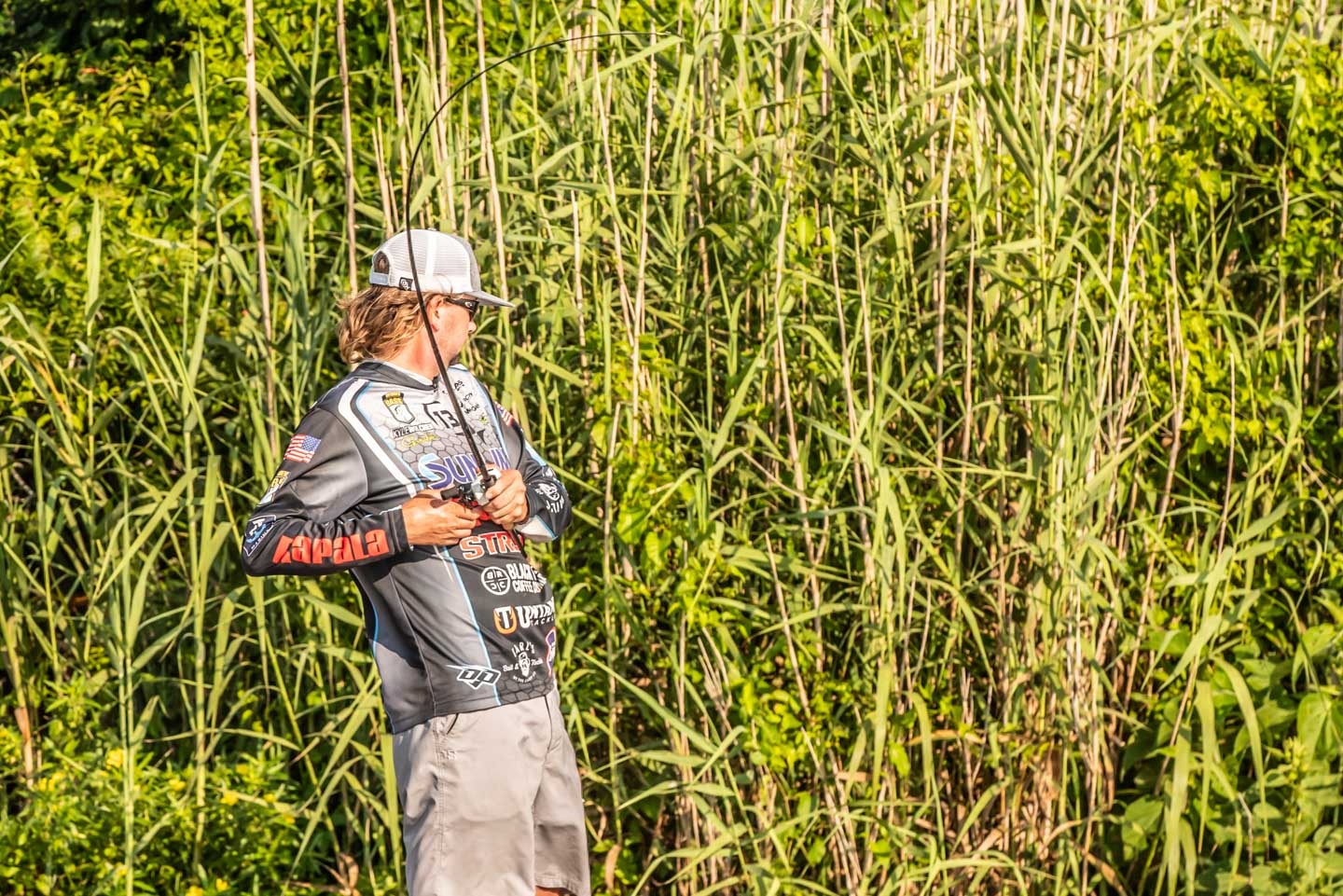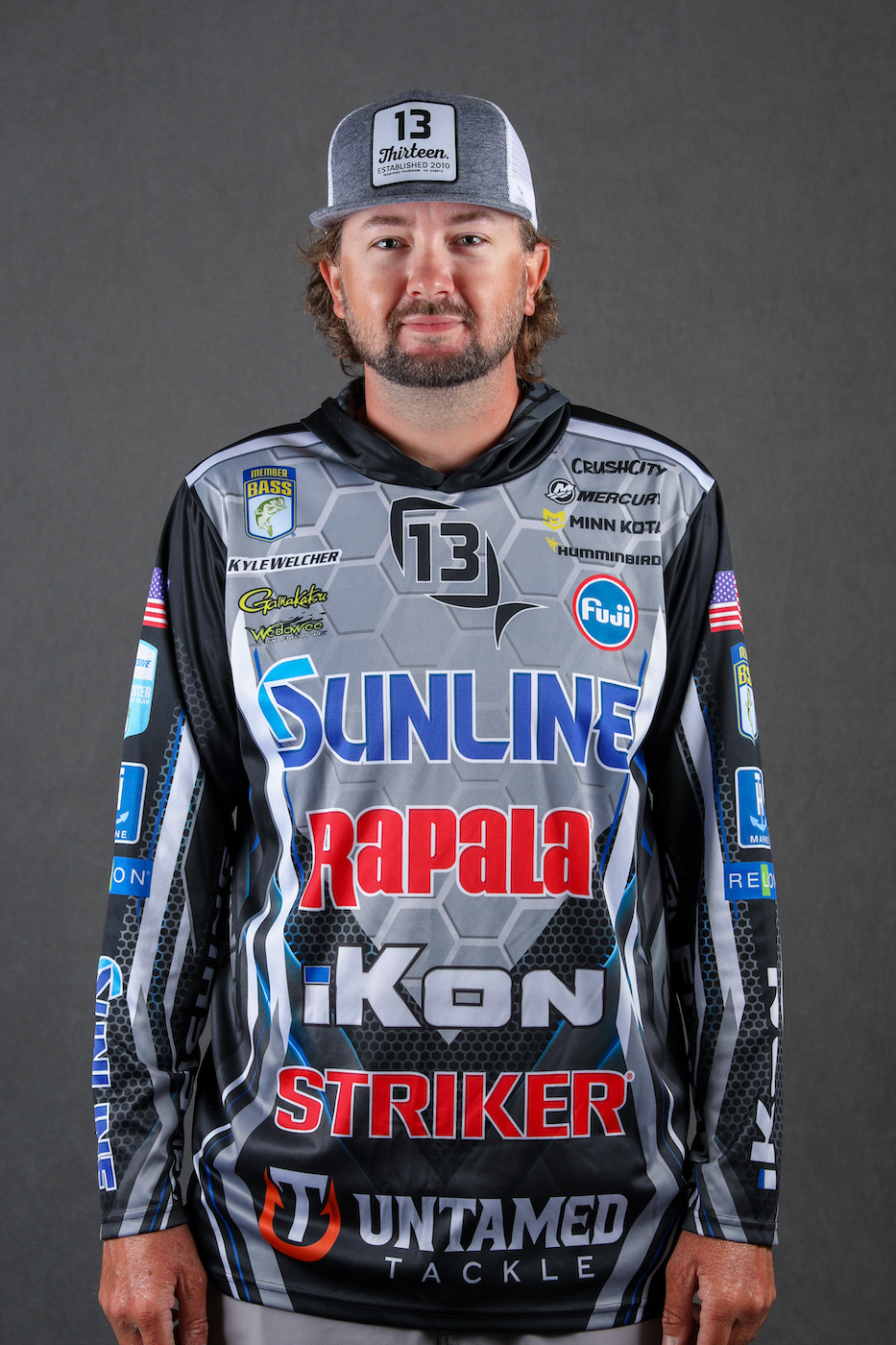
There is little doubt that the sport of tournament bass fishing has changed substantially over the last decade, especially when it comes to new boats, faster motors, GPS trolling motors, superior rods and reels, and of course, electronics. It seems that premium, high-end equipment is increasingly prevalent at all levels of the sport, including college and high school tournaments.
I’ve had conversations with parents whose kids are fishing on the scholastic end of the sport. In these conversations, the topic often turns to, “How much of this high-end fishing equipment does my son/daughter really need to compete in local or academic-level tournaments?”
This is a tough one to answer. It’s a slippery slope because I didn’t have premium products when I was fishing at that age. I started tournament fishing with entry-level gear. Plus, it’s not my place to judge someone for how much money they spend on fishing equipment.
However, one thing that concerns me is when I hear parents say something like, “My son says he can’t compete in the high school tournaments because he doesn’t have a brand new boat or some of those ‘new electronics.’”
In my opinion, when not having the latest-and-greatest gear becomes an excuse not to fish, it’s time to pump the brakes and examine the motives for wanting to fish in the first place. If tournament bass fishing is something you want to pursue for a long time, it’s critical to understand that acquiring equipment should be a means to an end, not the end itself.
Old-school upbringing
I grew up in East-Central Alabama fishing the Chattahoochee River valley, north of Lake Eufaula. This area of the country is sort of a cultural time capsule when it comes to tournament bass fishing, and I was a product of this old-school landscape.
The Tuesday nighters, Wednesday dogfights and Thursday dustups were all about the fishing – not showing off fancy equipment. Some of the best anglers in that valley still fish from older aluminum boats with rods and reels that were made a decade ago. Their passion is more focused on fishing and less on the material goods used to do it. They make the best of what they have available at the time. It’s almost as if their resourcefulness is a criteria of the competition. These are the philosophies that molded my own fishing.
When I started fishing those same evening tournaments as a high-school kid, I would fish with whatever I had. I used a beat up aluminum rig with a cable-steer trolling motor and a few rods and reels that could be considered flea market specials. I didn’t really care what I was using because I didn’t know any better. All I knew was I wanted to fish every minute possible.
When I was on the water, I was totally absorbed in getting another bite. For me, it was about the passion of the pursuit, not purchasing premium gear. The last thing on my mind was that my boat was slow or my reels were grinding. I never, ever, thought, “Man, my old reels suck, so I’m going home.”
When I started fishing larger local events and BFLs in about 2015, I used a 2011, 18 1/2-foot base model bass boat with a standard cable foot-controlled trolling motor. The electronics consisted of a graph in the dash and a unit up front that might as well been a clock. I hodge-podged casting combos together with used rods and reels. I used that boat and equipment to qualify for the All-American in 2016.
When I decided to fish the Bassmaster Opens in 2019, I bought a new boat with just two graphs, one on the console and one up front, with no forward-facing sonar. The trolling motor was a standard cable-steer trolling motor.
By that time, I had plenty of money to buy the highest end rods and reels in the business, but I kept using the old beaters I already owned. In fact, while fishing the Opens that year I owned only one spinning rod. By the time I headed to Oneida, I had to borrow a couple of extra spinning outfits from a friend. Despite not having the latest and greatest equipment, I still qualified for the 2020 Bassmaster Elite Series through the Eastern Opens.
I used that same boat and equipment in my first year on the Elites without forward-facing sonar or spot lock. I finished 10th in the points and missed the Bassmaster Angler of the Year title by 48 points. My three worst tournaments were offshore events where forward-facing sonar played.
When the season ended, I began thinking I could have won the AOY if I had forward-facing sonar on my boat. I assumed that having the “latest and the greatest” would have magically brought me better finishes in those events. Once I actually started using forward-facing sonar, I realized that if I had it in 2020, it might have been a disaster to my season. I would have been trying to use something that I really didn’t understand, which could have been a huge distraction to my true way of fishing.
That’s my primary reason for not going all-in on brand new equipment every year. The older stuff I had worked fine. I wanted to fish with what I already owned to better understand what I really needed to improve my fishing style. It’s important to realize that the best equipment for one angler is not necessarily the best equipment for another angler.
After hundreds of hours of fishing with standard gear, I began to see the need for tweaks, like specific rod lengths and actions. Or perhaps reels that had faster reel ratios for more efficiency on certain techniques. For me, investing in premium gear came only after I truly understood how it would improve my game in the ways I wanted to fish. It’s a process that involves a lot of evaluation about the incremental gains that come with premium gear.
Would spending extra money on a new boat that runs 3 miles per hour faster really help me? Would buying a dozen top-of-the-line reels to gain an extra 20 feet of casting distance really help me if I was primarily skipping docks? Would adding two more 12-inch screens to the front of my boat really help me, or just get in the way?
Since 2020, I have worked more modern equipment into my game, including forward-facing sonar, spot lock trolling motors and better rods and reels. But I fish on the Elite Series: the highest level of competition against the best anglers in the country. The “premium-product tube” becomes more worth the squeeze at this level.
Changing perception with passion
The prevalent message of our modern society is buying the best will make you the best. But when that message gets turned around into – since I don’t have the best, I’m not the best – the tendency is to become more focused on things you don’t have. This can become a negative narrative that spirals into: Since I don’t have this or that, I can’t even participate in fishing.
Please understand, I am not knocking the top-of-the-line products in tournament bass fishing. I own some these premium products myself, but I did not start my career with them. I just want young anglers to know that disadvantage due to equipment is largely a perception. That perception can be changed with passion. True passion for your pursuit trumps purchasing the best of everything.
And you can’t purchase passion.

